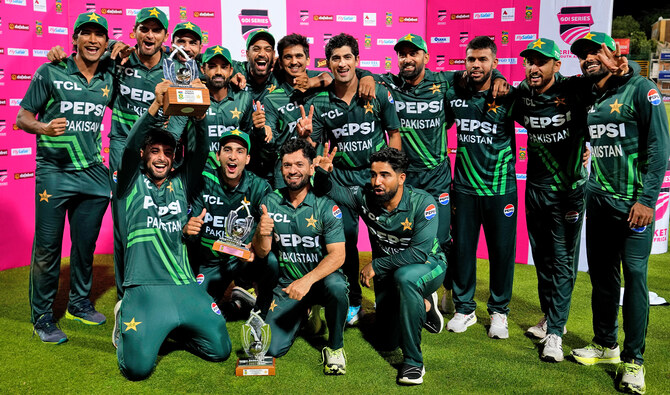ISLAMABAD: Negotiations are ongoing for the appointment of a caretaker chief minister in Pakistan's most populous province of Punjab, with Prime Minister Shehbaz Sharif’s ruling party remaining tight-lipped over its candidates while the rival Pakistan Tehreek-e-Insaf (PTI) party has forwarded three names for the slot to the provincial governor.
The discussions come days after the 17th provincial assembly of Punjab was dissolved on January 14. As per the law, the province has to elect a new legislature no later than April 14.
Punjab is home to more than half of Pakistan's population of over 220 million, and is one of two provinces ruled by ex-PM Imran Khan's PTI party. PTI members have also announced they will dissolve the local assembly of the other province it rules, Khyber Pakhtunkhwa.
Political analysts say the new pressure created after the Punjab assembly's dissolution plays into Khan's demand for an early election, although any local assembly elections do not constitutionally trigger a national election.
On Monday, Punjab Governor Baligh-ur-Rehman said he had received three names for caretaker CM from Khan ally Chaudhry Pervaiz Elahi, which were being “forwarded to Opposition Leader Hamza Shehbaz Sharif.”
“I would like to see both of the leaders jointly agree on any name within the stipulated time,” the governor said in a statement.
Elahi, the outgoing chief minister, has suggested the names of Sardar Ahmed Nawaz Sukhera, Nasir Mahmood Khosa and Muhammad Naseer Khan for the caretaker CM's post.
PM Sharif on Monday held a meeting with senior party leaders in Lahore to discuss his side's names for the interim chief minister, but the party had yet to make an announcement.
Arab News tried reaching several members of the PML-N via calls and texts, but could get a comment on the appointment of the interim chief minister and the party’s strategy for the upcoming elections.
Both the chief minister and the opposition leader are required to forward three names to the governor within three days of the dissolution of the provincial assembly, which falls tomorrow, January 17. If the chief minister and the leader of the opposition fail to agree on any name, they are then to forward two nominees each to a parliamentary committee to be constituted by the provincial assembly speaker, according to the constitution.
This committee comprises six members of the outgoing provincial assembly, having equal representation from the treasury and the opposition. The members are nominated by the chief minister and the opposition leader. The committee has the mandate to finalize a name for the interim chief minister's post within three days of “the referral of the matter to it.”
“Provided that in case of inability of the Committee to decide the matter in the aforesaid period, the names of the nominees shall be referred to the Election Commission of Pakistan for final decision within two days,” the constitution says.
The provincial governor is empowered under the constitution to appoint members of the caretaker cabinet on the advice of the interim chief minister. However, members of the caretaker CM’s family and his cabinet are not eligible to contest the immediate election.
Syed Hassan Murtaza, the Pakistan Peoples Party's (PPP) parliamentary leader in the outgoing Punjab Assembly, said his party was discussing names for the slot of the caretaker chief minister in Punjab, but the process “had yet to be completed.”
“The senior leadership of our party is considering different names for the slot and hopefully, we’ll be able to announce it soon,” he told Arab News.
Both the PPP and the Sharif-led PML-N are coalition partners in the center.
Experts said it was the responsibility of the election commission to hold free and fair elections in Punjab, following the installation of a caretaker government.
“The election commission has adequate powers under the constitution to ensure a level playing field for all the contesting candidates in the elections,” Rashid Chaudhry, a deputy director at the Islamabad-based Free and Fair Election Network (FAFEN) advocacy group, told Arab News.
“The electoral body has the capacity and all the resources to hold transparent elections and all political parties should trust it fully for a transparent electoral process.”
















